AITA for refusing to help my partner financially?
In the quiet intertwining of two lives, a woman stands at the crossroads of love, legacy, and responsibility. Bound by years of partnership yet separated by the invisible lines of past loss and future promises, she navigates the delicate balance between honoring her late husband's memory and nurturing the blended family they've become.
Amid the comfort of financial security and the warmth of shared days, tensions simmer beneath the surface, fueled by differing values and the challenges of raising children shaped by very different worlds. This is a story of resilience, sacrifice, and the unspoken struggles that come with building a life together without the traditional bonds of marriage.



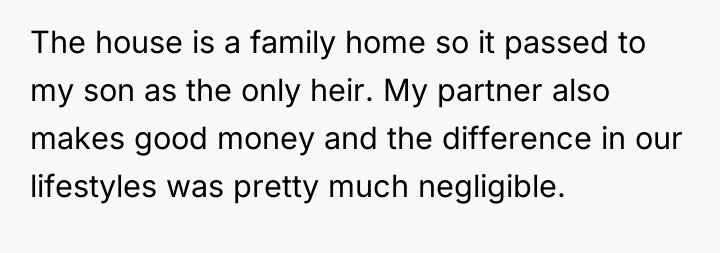
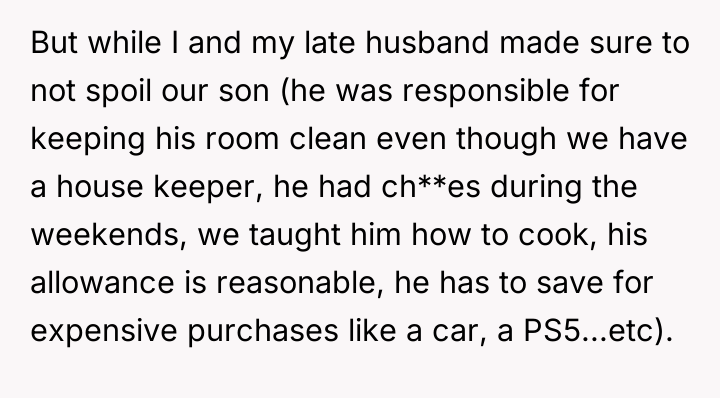



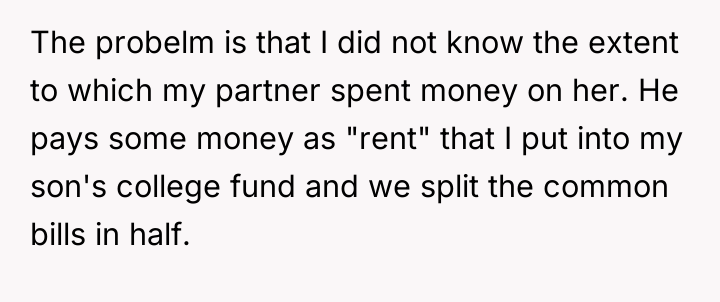
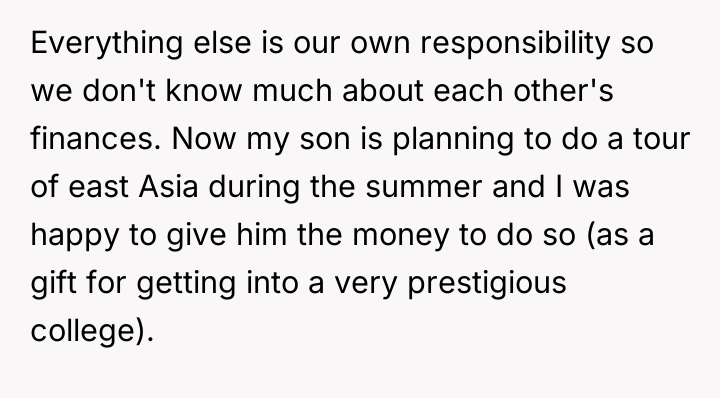




Subscribe to Our Newsletter
As renowned researcher Dr. Brené Brown explains, “Boundaries are the distance at which I can love you and me simultaneously.” This situation highlights a classic tension between respecting a partner's independent choices (funding his daughter) and protecting one's own established boundaries and financial philosophy. The OP and her partner have maintained separate financial spheres, which worked until the partner's inability to fund his generous promise intersected with the OP's substantial wealth. The partner's reaction—accusing the OP of playing favorites and prioritizing money over happiness—is a common deflection tactic when a boundary is enforced or a personal financial decision is questioned. The OP is not interfering with the partner's relationship with his daughter; she is refusing to underwrite his pattern of overspending or enabling. Her decision to save for her own son's experiences, rather than fund the stepdaughter's European tour, reflects a consistent approach to financial education, which contrasts sharply with the partner's pattern of immediate gratification for his child. The OP's refusal to lend the money, given her ability to afford it, was appropriate as it upheld her boundary against non-essential, interest-free lending that contradicts her values. For future effectiveness, the couple must move beyond treating finances as entirely separate domains when one partner’s financial actions directly create obligation or conflict for the other. A constructive recommendation would be for them to engage in a transparent discussion about their long-term financial expectations for their respective children, establishing shared principles for large, discretionary gifts or loans rather than allowing unilateral, high-stakes requests.
THE COMMENTS SECTION WENT WILD – REDDIT HAD *A LOT* TO SAY ABOUT THIS ONE.:
It didn’t take long before the comment section turned into a battleground of strong opinions and even stronger emotions.





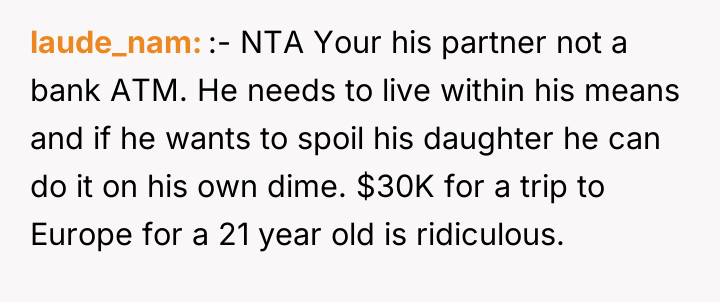

The original poster (OP) is facing a conflict rooted in financial disparity and differing parenting philosophies between her and her partner. She established clear boundaries regarding her stepdaughter's presence and financial expectations, but her partner's unconditional financial support for his daughter has now created a demand on shared financial resources or, at minimum, a request for a significant personal loan from the OP, which she refuses based on her own financial principles.
The core question for debate is whether the OP is obligated to provide a substantial, non-emergency loan to her partner to fund his daughter's trip, especially when this contradicts her established values regarding saving and financial responsibility, or if upholding her personal boundary against enabling is the appropriate action, even if it causes temporary relational strain.